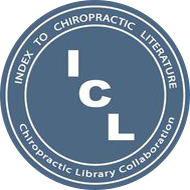| Objective: To test the hypothesis that restoring the lumbar lordosis will increase a patient's voluntary muscular strength and decrease back pain symptoms. Clinical Features: A patient was diagnosed with mechanical low back pain. The initial radiographic study revealed a loss of the lumbar lordosis. The patient determined his maximum bench press prior to the treatment program. The treatment outcome was based upon post-intervention radiographs, a Borg pain scale, and the patient's post-intervention maximum bench press. Intervention and Outcome: The treatment program consisted of warm-up exercises, spinal manipulation, rehabilitative exercises, neuromuscular re-education, and prescribed home care. The treatment period consisted of 12 visits in the first 4 weeks, followed by once weekly for another 12 weeks, for a total of 24 visits in 4 months. In the first month, the Borg scale decreased from 5/10 to 0/10, and after 4 months the lumbar lordosis was increased from 2° to 31°. The sacral base angle (Ferguson's angle) increased from 18° to 31°. The patient's maximum bench press also increased from 245 pounds to 305 pounds. Conclusion: Restoration of the lumbar lordosis appears to have a positive effect on muscular strength. This study supports the previous premise that a lumbar lordosis provides an inherent mechanical advantage for strength and stability. This abstract is reproduced with the permission of the publisher; click on the above link for free full text.
|
